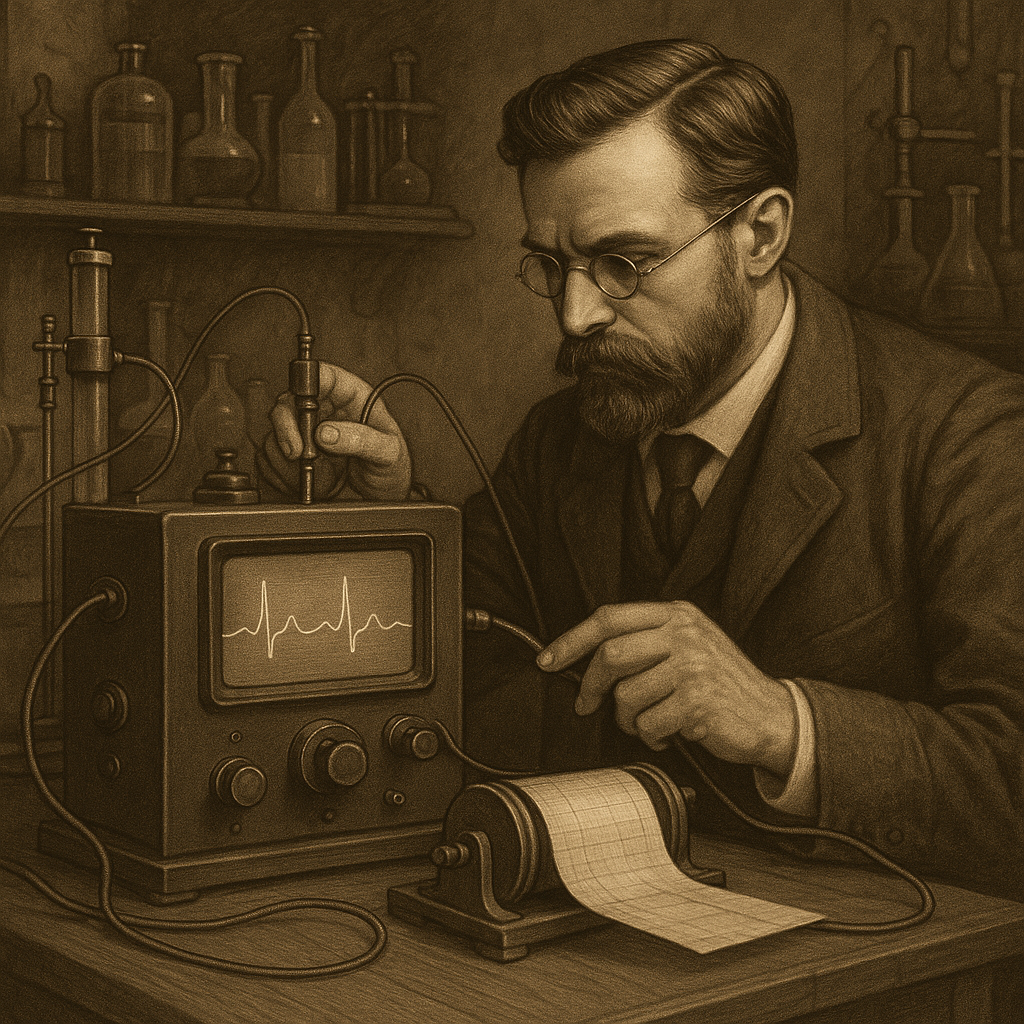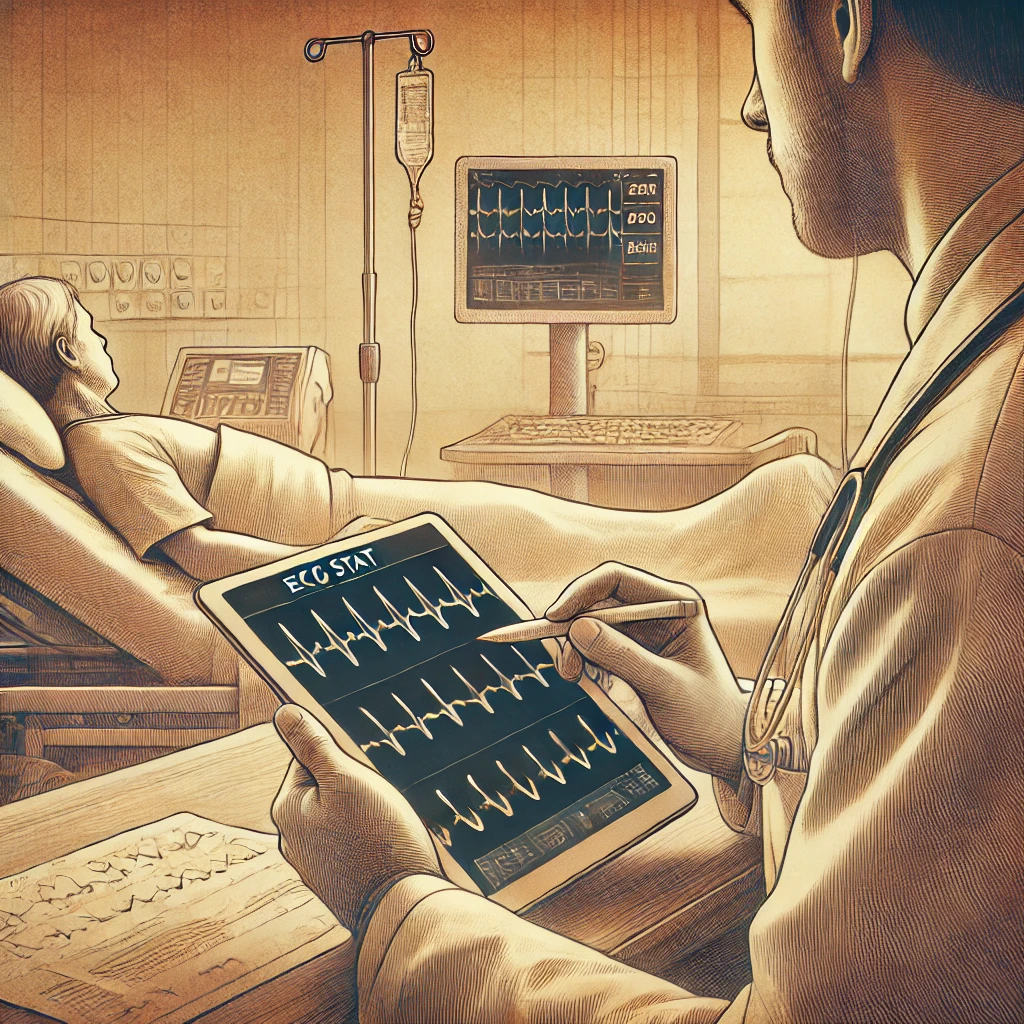
Key Points
- The ECG is a cornerstone of acute care medicine, offering immediate, non-invasive insight into cardiac function in critically ill patients.
- Its evolution spans over a century, from rudimentary lab instruments to highly portable, AI-assisted digital tools used across emergency departments, ICUs, inpatient wards, and prehospital settings.
- ECG STAT empowers clinicians at the bedside by delivering fast, focused access to interpretation criteria, differentials, and clinical decision support—right when it’s needed most.
- Mastery of ECG interpretation remains essential for all acute care providers. Early recognition of dangerous patterns can be life-saving and should not be delegated solely to computer algorithms or consultants.
- Today’s ECG tools enhance—not replace—clinical reasoning, allowing clinicians to connect rhythm findings with the full clinical picture and act quickly.
From Pioneering Beats to Lifesaving Measures: The Evolution of ECG in Clinical Medicine...
In the ever-evolving landscape of emergency and acute care medicine, few tools have stood the test of time like the emergency electrocardiogram (STAT ECG). A journey that began over a century ago has transformed into a mainstay of acute care, saving countless lives with its indispensable diagnostic insights. Let's explore some of the rich history of ECG, its transformative impact in clinical medicine, and how more modern advancements like ECG STAT are revolutionizing emergency care.

A Scientific Milestone: The Birth of Electrocardiography
The origins of the ECG trace back to the late 1800s, when scientists such as Augustus Waller and Willem Einthoven began studying the heart’s electrical signals. Einthoven’s development of the string galvanometer allowed for accurate ECG tracings and earned him the Nobel Prize in 1924. His work laid the groundwork for clinical electrocardiography as we know it today.
Clinical Integration in the 20th Century
Throughout the 20th century, the ECG became increasingly portable, accurate, and widely available. Clinicians across internal medicine, cardiology, critical care, and emergency services began using ECGs to evaluate a range of conditions including arrhythmias, ischemia, and conduction disturbances. The ability to rapidly detect life-threatening pathology at the bedside made ECG an essential part of the acute care toolkit.

Digital Transformation and the Rise of Point-of-Care Tools
In the modern clinical environment, digital ECG interpretation has transformed both accessibility and accuracy. Platforms like ECG STAT provide on-demand access to diagnostic criteria, differentials, and clinical context that support real-time decision-making. Clinicians can instantly reference findings, refresh their knowledge, and apply it in high-acuity settings including inpatient wards, ICUs, telemetry units, and prehospital care.
Artificial intelligence and machine learning continue to push this transformation forward. These technologies improve our ability to recognize subtle changes and enhance pattern recognition across diverse clinical populations.
ECG STAT: Supporting Bedside Clinical Reasoning
ECG STAT is designed to support healthcare professionals across a variety of acute care environments. It reinforces key ECG patterns, differentiates dangerous from benign rhythms, and links findings with relevant differentials. Whether managing chest pain, syncope, or sepsis-related cardiac complications, ECG STAT helps clinicians apply focused ECG knowledge quickly and effectively.
Paired with ECG Weekly, the platform supports continuous learning through spaced repetition and real-world case exposure.

Why Mastery Matters
ECG interpretation is often considered a fundamental skill, but the stakes of getting it right remain high. Rapid and accurate ECG analysis can change patient outcomes by guiding timely interventions. In acute care settings where every minute counts, confidence in interpreting ECGs can improve diagnostic efficiency, reduce delays, and support critical clinical decisions.
A Legacy of Lifesaving Insight, a Future of Precision Tools
From string galvanometers to AI-enabled platforms, the ECG reflects the advancement of acute care medicine. As clinicians, investing in ECG mastery means upholding that legacy while adapting to the tools and challenges of today. ECG STAT continues this mission by offering practical, accessible, and high-impact ECG resources for the entire spectrum of acute care.
Explore ECG STAT
Whether you are a nurse, physician, physician assistant, nurse practitioner, or medical learner, ECG STAT is built to support your clinical work. Stay sharp, stay current, and be ready for what your next shift brings.
ECG STAT Navigation


